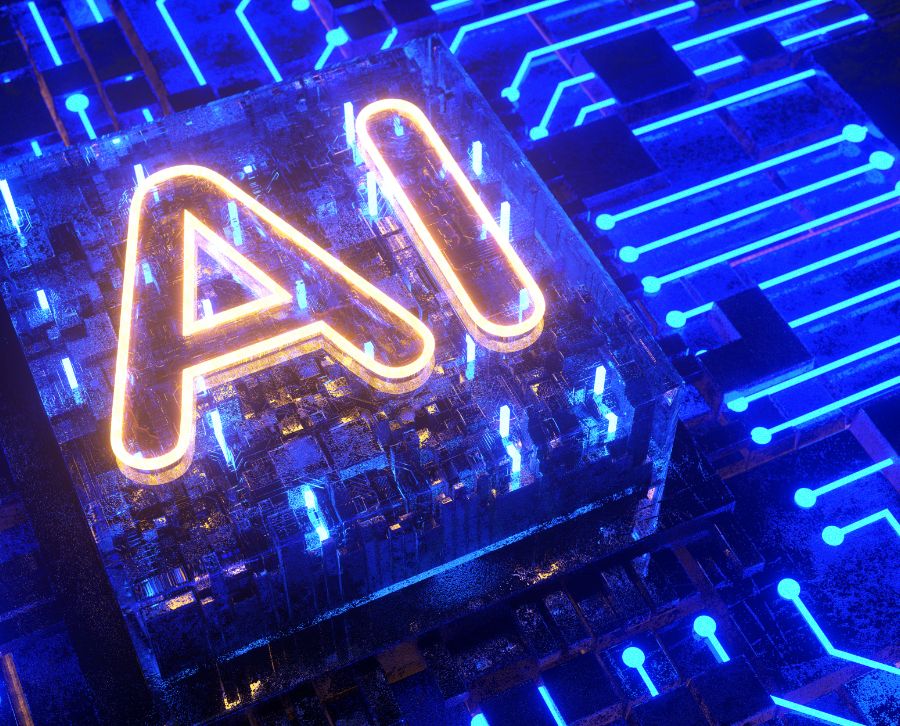Control access systems have been in operation for several years now. However, thanks to recent technological advancements, we can now find numerous tools that enhance our safety and security. This is where artificial intelligence plays a crucial role, as it provides secure solutions that will continue to improve over time.
These new technologies are particularly evident in the realms of both digital and physical security, as well as in healthcare security and medical care. In this article, we will delve deeper into the application of AI in access control and how we can harness its potential to enhance security levels to our advantage.
Increasing control and security with artificial intelligence
When we talk about artificial intelligence, we are referring to a set of programming algorithms created to provide devices with capabilities similar to those of humans.
The use of AIs has become so widespread that we can see them integrated into all sorts of technologies and devices. In fact, they are present in our daily lives, such as in GPS navigation devices, virtual assistants like Alexa and Siri, and even self-driving cars are powered by AI, just as they are driving access control.
Indeed, this technology represents a significant enhancement for various security-related tasks, such as the recognition of potentially dangerous people and objects, both indoors and outdoors.
AI in security has also brought improvements in biometrics, including facial recognition to grant access to users without the need for passwords or physical contact. Furthermore, machine learning and sophisticated analyses help the access control program actively improve, as well as the level of security.
Benefits of AI in control access
Furthermore, pattern recognition functions help cameras and sensors identify individuals or objects that could pose a problem. However, this technology is relatively new, and at the moment, efforts are still ongoing to improve its ability to effectively detect security threats.
Although, in the long run, the integration of AI into surveillance systems and other security systems will undoubtedly assist businesses in detecting security threats before they occur. Incorporating AI can be beneficial when addressing issues such as:
- Alarm overload due to multiple security alerts.
- Delayed response times that increase security risks.
- Lack of trained personnel that creates vulnerabilities in security strategies.
Undoubtedly, as AI continues to develop, more applications for access control will emerge. Below are some of the most common examples of where AI is currently used in conjunction with access control:
AI applications in control access
Artificial intelligence is frequently employed in various control access systems, enhancing efficiency and security. Among the most common applications of AI in access control are the following:
Video analysis
Thanks to AI, video analysis systems can capture suspicious activities such as people attempting to access restricted areas or possessing illegal items.
An example of this system is installed at the Chicago Convention Center. This is aimed at identifying suspicious movements to ensure the safety of attendees.
IA conversational
There are AI-powered chatbots that respond to users’ questions and requests. This can be of great assistance in relieving personnel from certain tasks, allowing them to focus on other duties.
Today, they are common in customer service on various websites, although a notable example is the AI-enhanced chatbot at the Philadelphia Museum of Art. This tool can provide information about ticket purchases, exhibitions, and answer questions regarding museum security.
Facial recognition
With the integration of AI into facial recognition systems, it’s possible to identify individuals instantly, which proves immensely helpful in restricting access to restricted areas.
In London, specifically at Heathrow Airport, facial recognition mechanisms are used to control access at boarding gates. This system not only automatically identifies passengers but also streamlines the boarding process by serving as a tool to verify travel documents.
There’s no doubt that artificial intelligence has the capacity to positively transform access control, increasing efficiency, security, and simplifying many tasks.
The impact of artificial intelligence on security
AI is making waves in the realm of security, primarily because its use has had a significant impact on this sector, thanks to the significant benefits we’ve mentioned earlier.
It’s an extremely efficient tool when it comes to preventing threats by implementing security controls and policies. As an example of this, there are AIs that serve to block access to suspicious websites or restrict access to unauthorized devices.
Artificial intelligence in security can swiftly analyze a vast amount of information to discern patterns and anomalies that could indicate potential danger. This ability allows it to respond to security incidents as quickly and effectively as possible.
What is the future of access control with AI?
It’s expected that with technological advancements, the benefits that AI can offer to access control will significantly increase. In the near future, many advances are anticipated in the realm of biometric access control. In other words, AI could be used to enhance systems that utilize fingerprints, voice, or iris recognition, providing greater security compared to traditional access methods.
Additionally, it’s expected that AI can be employed to automate tasks such as credential issuance, record management, and predictive access control. In short, anticipating who wants to enter a specific room, for instance.
As you can see, artificial intelligence has the potential to transform access control systems, resulting in increased security, customization, and efficiency. This will lead to safer and more easily manageable facilities in the future.

